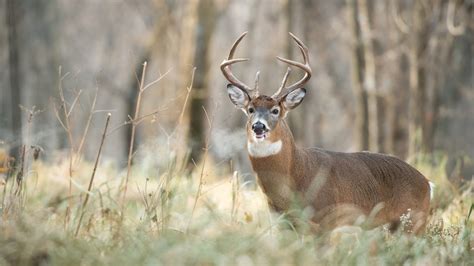How To Hunt Late Season Bucks
Ronan Farrow
Apr 01, 2025 · 3 min read

Table of Contents
How to Hunt Late Season Bucks: Strategies for Success
Late season buck hunting presents unique challenges and opportunities. The bucks are older, wiser, and often more wary, but the rut is over, and they're focused on survival. This means adapting your strategies for success. This guide will help you understand late-season deer behavior and implement effective hunting tactics.
Understanding Late Season Buck Behavior
The late season, typically from January to the end of hunting season, sees a significant shift in deer behavior. The rut is long over, and bucks are now primarily concerned with finding food and staying warm. This influences their movement patterns and feeding habits, significantly impacting your hunting strategy.
Key Behavioral Changes:
- Increased daytime activity: With less breeding activity, bucks are less likely to be active only during nighttime hours. They become more predictable in their daily routines, often seeking food sources during the daylight hours.
- Focused feeding: Bucks spend a considerable amount of time foraging to replenish their energy reserves after the rut. They’ll concentrate on high-calorie food sources like acorns, agricultural crops (if accessible), and browse.
- Reduced scent activity: While bucks are still capable of detecting scents, their overall activity is lessened, potentially decreasing the effectiveness of scent-based hunting methods compared to earlier seasons.
- Increased alertness: Bucks are warier after enduring hunting pressure throughout the season. They've learned to recognize human activity and will be more cautious and less easily approached.
Effective Late Season Hunting Strategies
Successfully hunting late-season bucks requires careful planning and adaptation. Here are some effective strategies:
1. Location, Location, Location:
- Focus on food sources: Identify areas with abundant food sources like oak trees, agricultural fields, or thickets offering browse. Bucks will concentrate their efforts in these areas, increasing your chances of encountering them.
- Utilize bedding areas: Consider hunting near known bedding areas, particularly those close to food sources. This offers a strategic position to intercept bucks travelling between feeding and resting locations.
- Favor south-facing slopes: During cold weather, bucks prefer areas offering maximum sun exposure to stay warm. South-facing slopes can prove highly productive during this period.
2. Hunting Tactics:
- Still hunting: Slow, deliberate movement through the woods, allowing you to cover a lot of ground while staying concealed. This requires patience and keen observation skills.
- Stand hunting: Strategic placement of tree stands or ground blinds near known deer trails or feeding areas, maximizing the potential for a successful ambush.
- Trail camera scouting: Utilizing trail cameras can significantly improve your scouting efforts. This helps identify active trails, preferred feeding areas, and typical movement patterns of late-season bucks.
3. Late Season Gear and Techniques:
- Scent control: Maintain meticulous scent control. Though reduced in importance, it's still crucial to minimize your human scent to avoid detection. Use scent-eliminating sprays and clothing.
- Warm clothing: Dress appropriately for the cold weather. This ensures comfort and helps you remain alert and focused for extended periods.
- Blending in with your surroundings: Use camouflage clothing and face paint to improve concealment and blend into your environment.
- Consider using a decoy: Certain situations could benefit from a decoy strategically placed to attract curious bucks.
Conclusion
Hunting late-season bucks requires patience, adaptability, and a thorough understanding of deer behavior in this period. By focusing on key food sources, carefully selecting hunting locations, employing appropriate tactics, and practicing meticulous scent control, you can significantly increase your chances of bagging that mature buck. Remember, safety is paramount; always follow safe hunting practices and respect wildlife regulations. Happy hunting!
Featured Posts
Also read the following articles
| Article Title | Date |
|---|---|
| How To Keep Squirrels Away From Hummingbird Feeders | Apr 01, 2025 |
| How To Make Starbucks Pineapple Refresher | Apr 01, 2025 |
| How To Make Blueberry Pie Using Canned Filling | Apr 01, 2025 |
| How To Make Money As A Poet On Instagram | Apr 01, 2025 |
| How To Install Depth Finder On Pontoon Boat | Apr 01, 2025 |
Latest Posts
-
How Does A Smoke Tube Work
Apr 04, 2025
-
How Does A Regenerative Thermal Oxidizer Work
Apr 04, 2025
-
How Does A Pilot Light Go Out
Apr 04, 2025
-
How Does A Moment Last Forever Sheet Music
Apr 04, 2025
-
How Does A Generator Work Without Electricity
Apr 04, 2025
Thank you for visiting our website which covers about How To Hunt Late Season Bucks . We hope the information provided has been useful to you. Feel free to contact us if you have any questions or need further assistance. See you next time and don't miss to bookmark.
